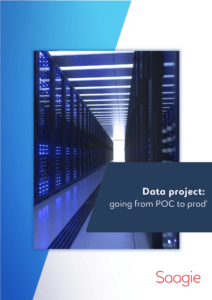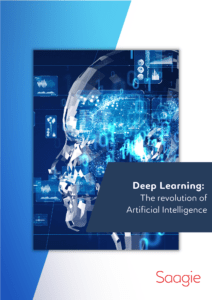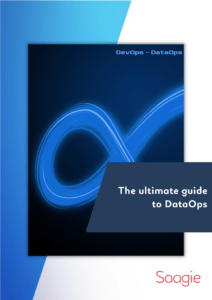Gilbert Ton, a lifelong experienced CDO, recently published “Chief Data Officer” with its co-author, Alain Yen-Pon. Today, he’s sharing with us his knowledge about Chief Data Officers and their missions. Who are they? What are their missions? This profession will no longer be a mystery for you. Long story short, the Chief Data Officer’s mission is to conceive the company’s data strategy: guarantee data quality standards generate value from them.
This book “Chief Data Officer, Practices, Tools & Perspectives” is the first publication about this profession written in French. This position in the company is essential to demonstrate the increasing importance of data within organizations. We are also trying to share best practices and methods based on our personal experiences, and those of 26 other Chief Data Officers or experienced Data professionals, in order to help freshly named CDOs.
Who is the CDO and where can we find him/she?
There is no unique profile for the job, it is indeed a multifaceted job. Chief Data Officers are strategists, conductors, builders, evangelists, all at once. They can come from IT management, project management as well as business teams (marketing, risk management, compliance) depending on where they are working. Others also come from strategy or communications.
One thing is for sure, CDOs need to have a certain level of knowledge on the different expertises of the company and a high capacity to educate and communicate in order to convince collaborators to start digital transformation.
What is a data strategy?
We can consider data from two angles. On the one hand, data are assets, a resource allowing value creation. But on the other hand, data can be considered as liabilities, a technical debt growing as years go along that suddenly becomes a burden for organizations.
Conceiving the right data strategy relies on finding the right mix between a defensive strategy – guaranteeing a high data quality – and the offensive strategy – creating value for the company. This equilibrium depends on the company’s level of data maturity and on its global strategy. The company thus needs to make technological and architectural choices, implement governance, and ensure high data quality in order to develop use cases and raise awareness about the essential role of data processing.
What are the missions of the Chief Data Officer?
His mission is to elaborate the company’s data strategy. His daily tasks depend on the data maturity of the company. But in any case, the CDO must, by all means necessary, allow his teams to extract data, to process it and use it with a high level of trust in order to create value. His actions can be various, such as implementing governance and data processing, building the technological architecture adapted to the company’s needs (data lake, data science platform…), allowing collaborators to create value from data through use cases and thus democratize data usage within the organization.
Do all companies have Chief Data Officers? Why?
Nowadays, almost all big companies have CDOs. Yet we frequently notice the presence of a similar profile, with the same missions albeit under another designation. It also depends on the level of maturity of the company. So, a lot of organizations are now convinced of data’s potential. I’m also convinced that by reading this book, the idea of acquiring these talents will be boosted in decision makers’ minds.
What is the CDO's biggest challenge nowadays?
As for any transformation, digital transformation is no exception to the rule. It is all about management and culture. I personally think the biggest difficulty is to get the entire company on board with this transformation as the impacts are great on management, on collaborators’ state of mind. Sometimes, the whole culture needs to be redesigned, that would explain some resistance from decision makers and collaborators. This is why finding the right mix between the two strategies mentioned before is absolutely essential.
What profiles are under his/her authority?
We often find all skills about governance, data processing and how we analyze them (data engineer, data scientist, data steward…). New profiles are emerging among data teams that can be referred to as “Chief Ethics Officer” whose mission is to guarantee ethical algorithm creation and data quality.
How does the sanitary crisis impact the CDO?
First of all, Chief Data Officers must face management challenges as they have Data Offices to handle. From now on, they need to manage them remotely. In addition, a data office works closely with business and IT teams, which requires adaptation of the whole organization. This challenge does not only regard data teams, all teams must adapt.
Moreover, most companies are realizing the essential role of digitalization. Even though the awareness has been growing for the past few years, the crisis confirmed this trend and accelerated the transformation process.
How do you see the data sector in the next few years?
Data is clearly increasingly integrated in companies development strategies. The position has changed a lot in the past 5 years, and its strategic role is growing. Yet, a lot of companies are still uninformed about how to build a data office. In addition, other positions are emerging such as Chief Digital Officer or Chief AI Officer. The challenge is to make sure there is no overlap between these jobs.
I personally think data offices will be reinforced with maintenance, implementation and business applications teams, a kind of “proximity IT” for business. Data offices can also become a center of excellence, a pool of data experts able to bring use cases to production and to integrate them with business processes.
Moreover, with current European Commission’s ambitions about data, the role of the CDO will increasingly include an ethical dimension, and the creation of European data sharing platforms. Not only does data have a growing role in companies’ development, it will also have a growing impact on our lives. How to protect citizens will be a question raised more and more systematically.
What advices would you share with Chief Data Officers?
It is essential to evaluate the level of data maturity of the company, and which direction it wants to take. We need to know where to start to be able to measure progression. Building a centralized team is not a means to an end, because it mostly depends on organizations. It is important to be close to business teams, because value comes from their use case needs.
A CDO needs to choose his battles, as he cannot do everything simultaneously. This is why finding the right equilibrium between a defensive and an offensive strategy is essential to onboard collaborators as soon as possible. The hardest part is to show evidence of value creation thanks to data and communicate these results quickly.

Data expert, Gilbert has been working in this field for more than 20 years in strategic and operational positions in major banking and insurance groups, before creating his own company to help companies, especially CDOs, to develop their data and artificial intelligence projects.









